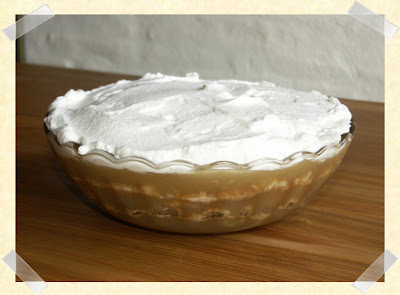What kind?
Like this:

Its only a few days old, Im pretty sure my mom still has some in their fridge. I may have to call them up to find out, so sorry no cake for you.
What kind?

Like this:

Its only a few days old, Im pretty sure my mom still has some in their fridge. I may have to call them up to find out, so sorry no cake for you.
you better be a woman with that sad face otherwise I may have to slap you with my fist
I always seem to read Fuckjack instead of Fudjack
Sorry, but I'm not into that gay kinky stuff.
There was a time back in 1996 when I wanted to call him that.
wtf?
you ruined it
Okay back to the topic, I may have to leave for that to happen, so kisses
That stuff [at op] is only trying to prove a little bit. But you see, that's the bit that matters, along with its empirical method which is wanting in the MBTI. And it alone says nothing about Fudjack's depth of penetration into this subject. But considering his proof of the MBTI's circular question-begging, I would say that he has traced it back to its source and uprooted the entire thing. And for me that points to a respectable genius who is no mere dilettante.
I guess from that you could say I am more the "depth-of-knowledge" rather than "breadth of knowledge" type. I am interested in gathering more knowledge if I am certain the foundation is secure. The MBTI's foundation is not secure, it rests on very shaky grounds.
But before I knew this, I thirsted for and read all the books on the subject that were available at the time. Then I quit because I began to realize that, on more than one level, the entire quest is fruitless. And at the time it had a detrimental effect on my personal growth. It distracted me from what was really important.
By the way, I am disappointed you did not call me on the Si inferior function comment at the end of my post. Maybe you didn't read the whole thing.
Edit - just a thought: I wonder if Myers and Briggs really intended people to take them so seriously, or to take their system so far?
why do you start talking about MBTI, when im talking about analytical psychology?
in order to understand analytical psychology, you need to go for breadth in order to understand the depth of things. MBTI rests on shaky grounds because its developed only by scratching the surface of analytical psychology, this test/theory on op is similar, but even lacks the research that has been done on MBTI.
i didnt care to debate about what you said about inferior Si.
btw here is quite interesting journal article:
http://onlinelibrary.wiley.com/doi/10.1111/j.1468-5922.2007.00687.x/abstract
about quitting because the quest was fruitless. no wonder it was fruitless if you didnt go to depth and breadth on analytical psychology. or did you just study mbti or other stuff derived from jungs typology?
Tertiary: Introverted sensing (Si)
Si collects data in the present moment and compares it with past experiences, a process that sometimes evokes the feelings associated with memory, as if the subject were reliving it. Seeking to protect what is familiar, Si draws upon history to form goals and expectations about what will happen in the future. Si gives INTPs the potential for keen observation. They use this function to gather empirical data, use physical tools, perceive physical relationships, and support their internal logic with a rich sense of space.
INTP: I couldn't read the article you linked me to, only the abstract. But I decided to look up my tertiary function on wikipedia. Here's quote from that entry:
"Si gives INTPs the potential for keen observation." Potential? I thought it already existed. But what stands out for me is the part about gathering empirical data, a trait that has been missing from your posts and in fact you don't seem to consider it important. So it seems to me that you need to apply your knowledge of analytical psychology to yourself, as an INTP with tertiary Si, and that what I've been doing all along is correct.

why the heck are you talking about mbti again? jung > mbti > all > that thing in op
or do you think that mbti is part of analytical psychology?
 .
.intuiting =16
sensing =2
feeling =8
thinking =11
N-T-F-S = iNtj, iNtp, eNtp, eNtj
t=16
n=12
f=6
s=3
closest pattern on the list here (since there isn't T-N-F-S) is: T-N-S-F = inTp, enTj, inTj, enTp
I'm surprised I didn't score higher for feeling on this, or at least have the T vs. F scores even with each other, which commonly happens with these assessments. Preference for thinking, followed by intuition.... quite interesting.
